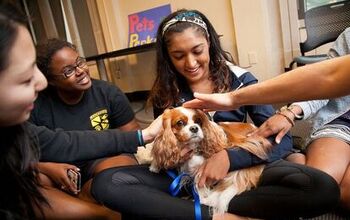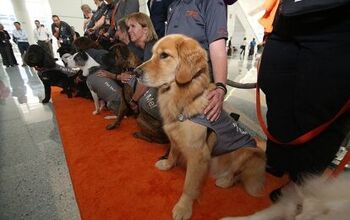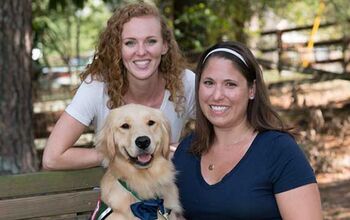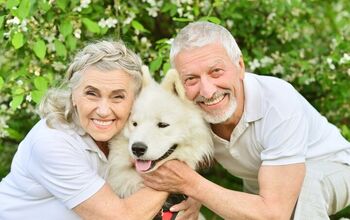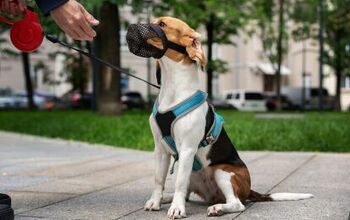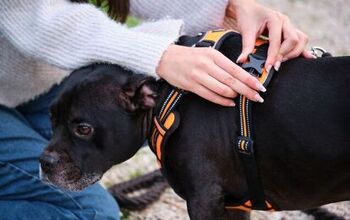Can Therapy Dogs Help Lower Medication for Pre-Op Kids?

Researchers at the University of Tennessee’s College of Veterinary Medicine will conduct a study that may open even more venues for therapy dogs everywhere. Therapy dogs are already used in many different places to help people with anxiety and agitation issues, and more and more medical institutions like hospitals and hospices are finding the benefits of pet therapy to be huge in rehabilitation with patients.
What Dr. Zenithson Y. Ng, DVM, who is the lead study investigator and a professor at UT’s College of Veterinary Medicine, wants to do is find out what effects play/interaction with therapy dogs before surgery will have on children’s’ anxiety levels, and more, whether or not that interaction may affect the level of anesthesiological medicines that is needed for surgical sedation.
Related: Visiting Hours Are Open For Pets At This Canadian Hospital
Always looking to support research and initiatives that show positive health benefits of companion animal interactions, The Human Animal Bond Research Initiative (HABRI) has awarded Dr. Ng and his co-investigators Dr. Julia Albright, DVM and Dr. Marcy Souza, DVM $79,000 to conduct the study at the University.
The study, which is titled The Effect of Animal Assisted Intervention on Preoperative Anxiety and Dose of Sedation in Children, will focus on the various effects of a child’s anxiety levels and subsequent sedative medication requirements before surgery after interaction with animals, (AAI, animal-assisted intervention).
Sedation of children in surgery is always a significant issue because of the fluctuation in sizes and required amounts per individual child. If it turns out that researchers are correct and that therapy dog interaction does help reduce the amount of anesthesiology needed for surgery, more research about the positive effects of AAI can be done and ultimately, therapy dogs could play pivotal part of a medical protocol for children and surgery.
It’s already been scientifically shown that therapy dogs are often a calming presence in medical institution settings, and that for many of all ages, interaction with the dogs helps reduce stress levels in both patient and family members of the patient. The grant provided by HABRI and the study done by UT will help continue proving the benefits companion animals can play, and will highlight how the human-animal bond can give healing benefit as well.
Related: Lending a Helping Paw: What’s Involved In Therapy Dog Training
An interesting aspect of the study is its aim to specifically show that the interaction with animals versus something else a child may find ‘calming’ is what will provide benefit. Seventy-two children who will require sedation will be studied, and the children will either receive an iPad tablet for 20 minutes or interaction with a therapy dog for 20 minutes before their procedures. The researchers will evaluate their vital signs and medicine levels and compare the levels between the two groups. The prediction is that the children who played with the therapy dogs will require less medicine and have significantly lower anxiety levels.
And while we aren’t researchers (and we love our technology!), we are pretty sure that it’s going to be very clear that there is no comparison. Goofy Golden kisses will win over Candy Crush every time!

More by Lori Ennis






